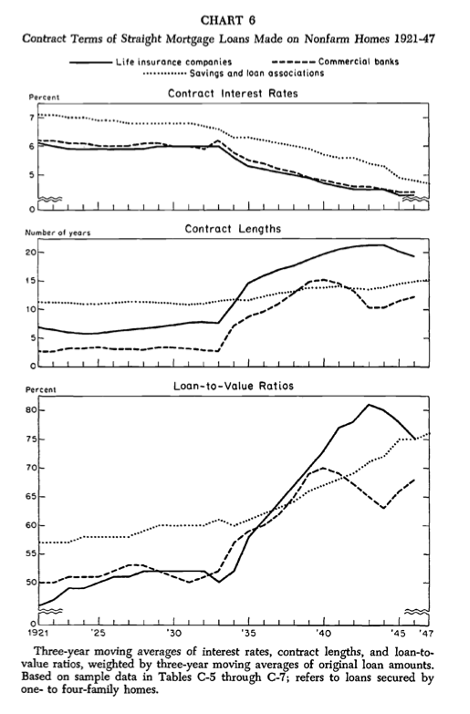I want you to imagine a world in which the government in your country enforces strict limits on the amount a lender can charge for a loan.
Let's call it 13% for a round number. Continue down this imaginary path further
and imagine banking in this land operates without any of the agency guarantees
that we enjoy in the United States: no FDIC, no FFCB, no GNMA, no FNMA, no
Freddie Mac. Let that sink in for a quick minute. Now, I want you to add a few
more variables into the mix. In this land, almost no one can qualify for a loan
because they have very little or no savings. Most people have no
collateral. Their economic condition is often
at the mercy of the vagaries of the weather and "luck". The idea of a mortgage
greater than 10 years is never even considered and down payment expectations
are in the 30% range.
A place like that exists, today.
That place is most of Africa. And what I am describing
specifically is the relatively advanced financial system in Kenya. Last week I
made my fourth trip to Africa with a group called Partners Worldwide. You can
check out their website here. Their
mission is to work with smaller businesses and financial organizations in third
world countries, teaching them excellent business practices. Without going into
it too much, it has profoundly changed the way I think about banking. It has
also made me profoundly grateful for the incredible systems we have available
to us. I went to Kenya to work with MFIs (Micro Finance Institutions)
specifically around the area of Small/Medium enterprises (SMEs). It has been a
wild ride and I have come to appreciate just how valuable the banking systems in
the United States and most of Europe really are. Some of the MFIs that I have
worked with are not allowed to take deposits…even if they had customers able to
deposit. This right is left solely to the huge banks, and they pay very close
to 0% on those deposits. The larger banks usually set a minimum loan amount
well above the operating needs of any medium to small sized business, because
they are frankly risky. This leaves many businesses that need to find 50-100k
dollar loans outside of what we would consider the normal banking arena. In my
experience during normal times, these businesses have repayment rates in the
95%+ range, even as they pay what would seem to us to be exorbitant interest
rates. However, despite that kind of "normal" performance, African nations have
no shortage of political risk—just check out Somalia! Without the help of MFIs, these smaller
businesses are forced to deal with what I can only call loan sharking
operations typically charging between 5-7% per month! Obviously, they operate
outside the legal 13% limit.
The purpose of this trip was to help these smaller MFI
operations by creating a fund to buy their loans. My overly simplistic explanation was that if
they are charging 13%, this fund could buy the loans, allowing the originators
to keep 7% for servicing, while we would grow our fund pool with the remainder.
It's a longer story than that, but given your familiarity with the U.S. context,
you probably get the idea. It happens every single day in America, where most
banks or credit unions simply log into their Fannie Mae desktop and sell their
loans with the click of the button.
The idea of selling loans had never been discussed in Kenya before,
at least as far as I have been able to determine. I met with big banks, small
banks, MFI's, SACCOs (the African version of Credit Unions), regulators, and
industry experts. No one had ever contemplated the idea of selling a loan. It is
such a foreign concept that they could hardly comprehend what that meant. Think
about that. Loans across the United States (and the entire developed world) are
actively traded, securitized, and sold. All day and every day. If I'm honest
with myself, I sometimes forget how powerful those simple actions are. It
clears balance sheets, helps mitigate concentration risk, makes credit more
accessible to more people, the list goes on and on. It has transformed banking
in our country, and through it home ownership, small business success, and more.
Banking in the U.S. has created a wealth machine for its citizens. Has it ever
been abused? Of course.

Think of the movie It's a Wonderful Life. It is
almost Christmas after all but recall the scene where Uncle Billy has caused a
run on the building and loan because he misplaced some of the cash, and the
mean old Mr. Potter wants it to fail. The visiting bank regulator wants to shut
them down: the depositors are in an uproar and George Bailey (Jimmy Stewart)
wishes he had never been born. This is what banking in an economy with no
support systems feels like every day. There is literally no access to capital.
Nor credit at a reasonable rate. No leverage. No borrowings.
Let's go back up to the first paragraph describing an "unusual" existing mortgage market. 10-year max terms at 13% with 30% down. What do you think home ownership rates are in a place like that? I would love to find some mortgage stats from the 1900-1920 era, but the earliest data I could find was in the archives of the National Bureau of Economic Research. The graphic below starts in 1921 and reflects mortgage rates, contract lengths, and LTVs during George Bailey's era.
I've also learned that these were generally non-amortizing
balloon structures that were generally balloon loans and rolled over every 5-7
years. In the early part of the graph, the rates and terms are not very
different from what I see in Africa today. Suffice it to say that in the pre-agency
era, banking was very different. Massive safes with lots of cool features sat
in every little country bank. If weather took out local crops, foreclosures skyrocketed,
and people lost everything. The modern era of banking—let's peg that to the
establishment of the FFCB (March 27, 1933)—has radically changed all of that.
We take it for granted.

So, what is the real point of this post?
Bear with me for a minute because I think this is important. Among African bankers, I saw the same sort of reaction to ideas we find commonplace, like selling loans, as I often see among U.S. bankers when they are presented an idea that is new for them. "It can't be done" or "We just don't do that here."
Of course, our systems and ideas have advanced beyond the
simple idea of selling a motorcycle or car loan into a pool so we can relend the
funds. Many complex ideas are created every day in the U.S. financial system,
and some of them should be avoided, but some are extremely powerful. In some
ways, smaller American banks and credit unions face challenges similar to those
of their much smaller cousins in Africa and the rest of the developing world.
The bigger banks don't really care if you survive or fade into the ether. They
really don't. They have access to things that you do not have. They have bigger
credit lines, more and effectively cheaper technology, and a myriad of other
advantages. I talked a lot about that in a prior post.
So, what's the point? For American banks sounding like my
Kenyan friends and asking about new ideas, I give them the same response: "Tell
me why you can't." I'm guessing there were similar conversations when FFCB and
FNMA first started buying loans. Change is hard. I wonder how long many banks
who were unwilling to adapt to this opportunity remained independent.
The banking industry has transformed America in very good
ways, of that I have no doubt—this trip cemented that in my mind. But we do
need to remain open to new ideas. I'm not trying to say every innovation will
be as transformational as FFCB, FNMA, GNMA and the FHLBs, but we do need
constantly ask ourselves that simple little question— "Tell me why we can't?"
This trip inspired so many thoughts, far more than I can
cover in a blog post. I would be happy to discuss my trip, or the ideas it
generated, at length. Shoot me an e-mail or give me a ring.
Final, final thought: I think I had the best Indian food
ever at a restaurant in London called Tamarind.
They don't mess around and the food was so good. If you get the chance
to go, do it!
Fill out the form below to subscribe to my weekly blog.
The information, analysis, guidance and opinions expressed herein are for general and educational purposes only and are not intended to constitute legal, tax, securities or investment advice or a recommended course of action in any given situation. Information obtained from third party resources are believed to be reliable but not guaranteed. All opinions and views constitute our judgments as of the date of writing and are subject to change at any time without notice.


